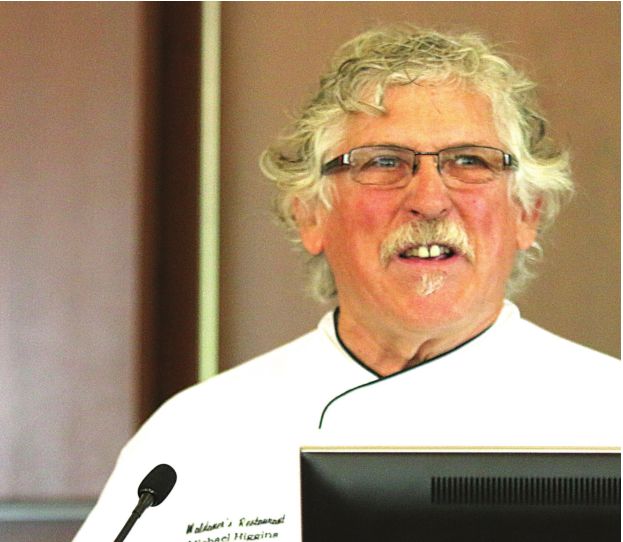
Experts gather in Springfield for symposium on environmental improvement
ENVIRONMENT | Patrick Yeagle
Of the more than 83,000 chemicals registered with the federal government in the United States, only about 200 have been evaluated for potential threats to human health and safety, and only five are actually banned.
That’s according to Jeff Saad, an architect at Melcher+Tucker Consultants in Chicago. On Sept. 25, Saad spoke to a group of fellow architects, designers, engineers and others in Springfield, imploring them to begin asking questions about the materials they use in buildings. Saad’s challenge was one of many issued at Springfield’s 11 th Annual Green Symposium, which focuses on the role of businesses in building a more “green” future.
Hosted by Resource One Office Furnishings and Design of Springfield, the event brings experts from around the nation to discuss trends in green design and break old assumptions about how businesses should operate. Saad’s keynote address called for an “ingredient label” on manufactured goods, while other speakers offered tips on eliminating waste, retrofitting old systems for efficiency and even overcoming excuses for delaying improvements.
Russ DeLozier, director of sustainability for Dalton, Georgia-based J+J Flooring Group, said his passion for sustainability comes from a fishing trip when he was six years old. After finishing a can of soda, the young DeLozier threw it into the water, and his environmentally conscious father immediately threw him in after it. Today, DeLozier says his company is aggressively pursuing a goal of zero waste, and he urged attendees to think critically about materials that are currently thrown away. One example he used was his grandfather’s generation straightening bent nails to reuse them.
“My grandparents knew more about sustainability than I will ever know,” DeLozier said. “They took ‘reuse and reduce’ to the extreme. Did that generation get it perfect? No, but we can’t look back at that generation and say they didn’t do something right. The truth is, in our consumer mentality, we have gotten to a point where we don’t straighten nails.”
Mark Steinmetz, an energy advisor with Ameren Illinois’ ActOnEnergy ® program, joked that he has straightened nails.
“I did it out of necessity,” he said. Ameren and other energy companies offer rebates on several energy efficiency improvements, Steinmetz said, adding that Ameren has given out $55 million in rebates since the program began under state mandate in 2008. Something so small as replacing an outdated exit sign with an LED version can save $30 annually, Steinmetz said, but bigger projects like replacing old boilers can save so much money that they pay for themselves.
“Those that are my age or older can remember when you’d see litter along the highway,” Steinmetz said. “We have a much cleaner society now that we all enjoy much better. I think we’re seeing that with energy efficiency. We’re on the beginning cusp of energy change, and it’s a cultural change. We have the responsibility as individuals to share that.”
Michael Higgins, owner and chef at Maldaner’s Restaurant in Springfield, said his various environmental projects over the years – from planting a rooftop garden to installing solar panels – have paid for themselves many times over. Higgins says he paid only $800 out of pocket for the $56,000 solar panel project, thanks to state and local rebates. Even though the panels only provide about 15 percent of his total energy, they – along with his other projects – have made him something of a celebrity in the business world. He says his restaurant has been featured in trade magazines and on sustainability tours, giving him free advertising and a reputation as an innovator.
“(Going green) creates a face for your business,” Higgins said. “It puts your community in the forefront. We can laugh or talk about or cry about what other cities have done … but all those cities now attract more tourism, their communities are more active and, given the choice at this point, they would never go back to the way it was.”
Contact Patrick Yeagle at [email protected].